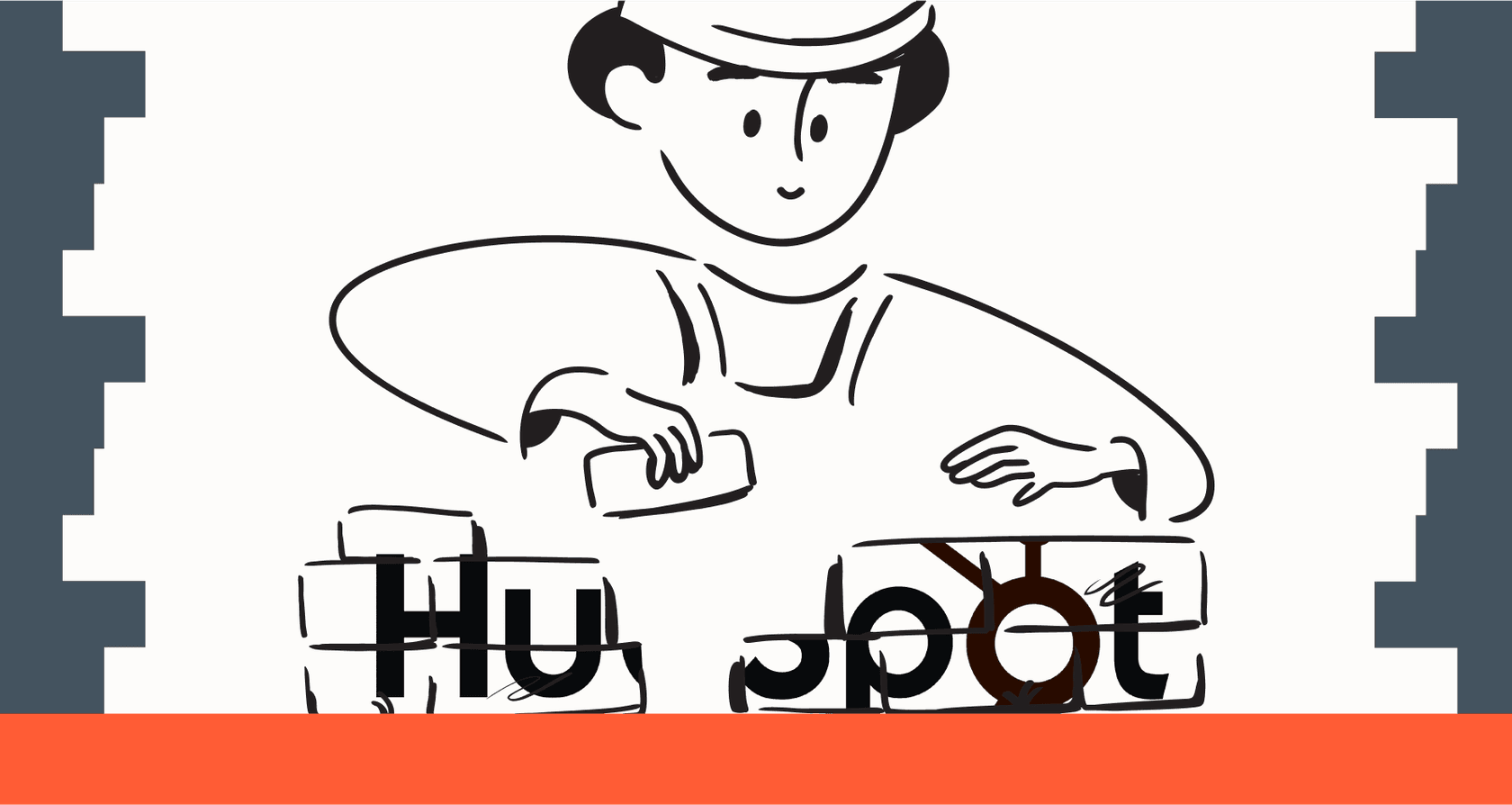I tried the top 5 AI tools that integrate with HubSpot in 2026 (here’s my verdict)

Stevia Putri

Stanley Nicholas
Last edited January 16, 2026
Expert Verified

If you use HubSpot, you've probably played around with its native AI tools like Breeze. They’re handy for whipping up a quick email draft or summarizing notes right inside the platform. As your workflows become more complex, you may look for ways to expand these features. What if you want to automatically research a new lead's website before a demo? Or handle customer support tickets that aren't even in HubSpot?
That’s a common goal for many growing teams. HubSpot's built-in AI is a powerful foundation, but to further automate your work and connect all the pieces of your customer's journey, you might look for specialized AI tools to extend those capabilities. I’ve spent a good chunk of time digging into the most popular options to find the best AI tools that integrate with HubSpot and solve specific business needs. This list is the result of that deep dive, breaking down the top 5 so you can find the right one for your sales, marketing, or support team in 2026.
What are AI tools that integrate with HubSpot?
Simply put, AI tools for HubSpot are third-party apps that provide specialized capabilities to your HubSpot portal. While HubSpot’s own AI performs excellently within your CRM, these external tools connect to your account to handle specific, advanced jobs.
They shine in areas that complement HubSpot's core features, like:
-
Digging for outside info: They can scrape websites or search the web to find detailed insights about your leads.
-
Handling complex automation: Think triggering a whole sequence of events across different apps, like creating a task in Asana and pinging a Slack channel all from one HubSpot trigger.
-
Using specialized AI brains: Some tools let you tap into specific large language models (LLMs), like Perplexity, for smart web searches.
-
Automating customer support: A lot of teams use HubSpot for sales and marketing but manage support in dedicated helpdesks like Zendesk or Intercom. These tools can automate support right where it happens.
Basically, they let you build the sophisticated, automated workflows that leverage HubSpot's robust infrastructure to its full potential.
How I picked the best AI tools that integrate with HubSpot
To make this list useful, I focused on tools that solve real, nagging problems for people who live in HubSpot all day. Here’s what I looked for in each one:
-
How well does it actually connect to HubSpot? Is it a simple, one-click setup that respects HubSpot's mature ecosystem?
-
What problem does it solve? I wasn't looking for vague promises. I wanted tools that nail common pain points like lead research, meeting notes, and customer support.
-
Is it powerful but still usable? The sweet spot is a tool that’s strong enough to make a difference without being overly complicated.
-
Does it help beyond the sale? I looked for tools that improve the entire customer journey, not just the part where you're trying to get them to sign on the dotted line.
-
Is the pricing straightforward? No thanks to confusing pricing models with hidden fees. I gave extra points to tools with clear, predictable costs.
A quick comparison of the top 5 AI tools that integrate with HubSpot
Here's a bird's-eye view of how the top tools stack up.
| Tool | Best for | Starting price | Key HubSpot-related feature |
|---|---|---|---|
| eesel AI | Automating customer support in your helpdesk | $299/mo | Works alongside HubSpot by automating support in helpdesks like Zendesk. |
| Clay | In-depth lead research and data enrichment | Approx. $800/mo (with HubSpot integration) | Triggers workflows to find rich prospect data and automatically add it to HubSpot. |
| n8n | Building custom, complex automations | Free (self-hosted) / $20/mo (cloud) | Connects HubSpot to just about any app with an API using a visual builder. |
| Daeda Essentials | Using different AI models in your workflows | Not publicly available | Lets you use models like Perplexity for web searches directly within HubSpot workflows. |
| Read.ai | Automating meeting notes and CRM updates | Free / $19.75/user/mo | Syncs AI-generated meeting summaries and action items to HubSpot contacts and deals. |
The 5 best AI tools that integrate with HubSpot
1. eesel AI

While most tools on this list are all about sales and marketing, eesel AI looks at a different piece of the puzzle that’s just as important: customer support. It's common for businesses to use HubSpot as their CRM but handle support in a dedicated helpdesk like Zendesk, Freshdesk, or Intercom. eesel AI is an AI agent that plugs right into those helpdesks to act as your first line of defense.
This is a big deal for HubSpot users because a seamless support experience reinforces the great work your sales and marketing teams do. eesel AI learns from your past tickets, help center articles, and internal docs in places like Confluence or Google Docs to solve customer problems on its own. If it gets stumped, it knows how to escalate the ticket to a human.
What I really like is how easy it is to get started and how much control you have. You can get it running in a few minutes without having to sit through a sales demo. Plus, its simulation mode lets you test the AI on your old tickets before you turn it on, so you can see exactly how it will perform and figure out your ROI without any risk. For teams that want to offer amazing support to match their HubSpot growth machine, eesel AI feels like a missing piece.
-
Pros:
- Incredibly easy to set up yourself in minutes.
- The simulation mode lets you test on past tickets before going live.
- Pulls knowledge from everywhere (helpdesk, docs, tickets).
- Clear pricing without weird per-resolution fees.
-
Cons:
- It doesn't plug directly into HubSpot's workflow builder; it connects to the helpdesk tools your support team is already using.
-
Pricing: The Team plan is $299/month for up to 1,000 AI interactions. The Business plan is $799/month for 3,000 interactions and adds features like learning from past tickets and taking actions. You get a 20% discount if you pay annually.
2. Clay
Clay is a powerful platform for digging up information online and synchronizing it with your CRM.
With Clay, you can build "waterfall" searches that check one source after another. For example, when a new lead lands in HubSpot, you could have Clay automatically find their company's LinkedIn page, look for recent news articles, scrape their website for certain keywords, and then have an AI summarize everything. That summary gets pushed right into a field on their HubSpot contact record. Just like that, your sales team gets a deep-dive report without lifting a finger.
Clay is a premium solution for teams looking for deep data capabilities. While Clay has some personal plans, the business version that connects to HubSpot is a professional-grade investment for high-growth teams. If your team lives and thrives on personalized outreach, it can be a valuable addition to your stack.
-
Pros:
- Incredibly powerful for web scraping and finding data.
- Connects with tons of different data providers.
- Shoves all that rich data right back into HubSpot for you.
-
Cons:
- It is a premium investment, particularly for the HubSpot integration plan.
- It can take a while to get the hang of it.
-
Pricing: The public pricing is for a personal CRM (starting at $10/mo). The business automation platform with the HubSpot integration is reportedly priced for larger teams, starting around $800/month.
3. n8n
If you're a bit of a tinkerer and want total control, n8n is for you. It's a workflow automation tool that lets you connect HubSpot to thousands of other apps using a visual, drag-and-drop editor.
The trade-off for all that power is a higher learning curve. Even with the visual editor, building good workflows means you need to be comfortable with things like APIs and webhooks. It's probably best for teams that have a dedicated ops person or someone technical who enjoys this kind of work.
-
Pros:
- Wildly flexible and powerful.
- Can connect to almost any service out there.
- The self-hosted version is free, which is awesome.
-
Cons:
- You’ll need more technical chops than for the other tools here.
- Setting up and managing complicated workflows can be time-intensive.
-
Pricing: The Starter cloud plan is $20/month (billed annually) for 2,500 workflow runs. The Pro plan is $50/month for 10,000 runs. There's also a free Community Edition you can host yourself.
4. Daeda Essentials
Daeda Essentials is another interesting tool that popped up in my research. Its standout feature for HubSpot users is something called an "OpenRouter" action.
This is a neat solution if you want to add additional AI models to your existing HubSpot automations. You could use it to take a prospect's company name, have Perplexity find any recent funding news, and then drop that info into a note on their contact record.
It’s a more focused tool than the others, really honing in on giving you access to better AI models. It feels like a good middle ground if you find HubSpot's native AI is already a great start but you want to try specific niche models. The biggest issue right now is that their website says "launching soon" and there's no public pricing, which makes it hard to jump in right away.
-
Pros:
- Lets you use lots of different AI models from inside HubSpot.
- Enables real AI-powered web search with models like Perplexity.
- Easier to set up than a full automation platform like n8n.
-
Cons:
- A bit of a niche tool that's just about AI model access.
- The pricing and full feature list are currently not public.
-
Pricing: Not public. You have to contact them for a demo.
5. Read.ai
Every sales team has this problem: you have a great call, but getting the important bits from that conversation into the CRM takes time. Read.ai is a lifesaver here. It’s an AI tool that joins your Zoom, Google Meet, or Teams calls and automatically creates summaries, transcripts, and action items.
The real magic happens with its HubSpot integration. After a sales call, Read.ai finds the right contact and deal in HubSpot and syncs the meeting summary over as a note. This frees up your reps to just focus on the conversation, knowing the CRM is being updated for them. No more trying to remember what was said or spending time on manual data entry.
It's a simple idea, but it's one of those automations that makes a huge difference in keeping your HubSpot data clean and making sure the whole team knows what's going on with a customer. It's an easy win for any sales team trying to be more efficient.
-
Pros:
- Completely automates logging meeting notes in HubSpot.
- Generates high-quality summaries, transcripts, and next steps.
- It's easy to set up and just works quietly in the background.
-
Cons:
- It's very focused on just this one specific task of meeting notes.
-
Pricing: There’s a generous Free plan with 5 meeting transcripts a month. The Pro plan ($19.75/user/month or $15/user/month if billed annually) gives you unlimited transcripts and unlocks the HubSpot integration.
How do you choose the right AI tools that integrate with HubSpot?
Looking at all these options can feel a bit overwhelming. Here are a few tips to help you decide:
-
Figure out your biggest problem first. Don't just go for the flashiest AI tool. What's the most time-consuming issue you have right now? Is it reps spending time on research? Is your support team busy? Pick the tool that solves that specific problem.
-
Be honest about your team's tech skills. Do you have someone who loves tinkering with APIs? n8n could be a great fit. If you need something that anyone on the team can set up in ten minutes, look at a tool like Read.ai or eesel AI.
-
Start small and test the waters. The best way to adopt AI is gradually. Look for tools that let you try before you buy. For instance, the simulation mode in eesel AI is fantastic because it shows you exactly how the AI will work on your real data, with zero risk.
-
Think about the entire customer journey. HubSpot is excellent for optimizing your sales funnel, and providing stellar support is the next step in that journey. A happy customer is your best marketing tool. Make sure your AI stack supports people from their first click all the way to their tenth support ticket.
This video shows how you can use some of HubSpot's AI tools to automate marketing tasks, saving time and achieving better results with less effort.
Look beyond the CRM for real automation with AI tools that integrate with HubSpot
HubSpot is a fantastic, industry-leading platform for growth, and it provides a robust foundation for your business. The real magic happens when you start connecting specialized AI tools to handle specific tasks that happen across your entire ecosystem.
Whether you need to give your sales reps deep insights with Clay, build custom workflows with n8n, or take meeting notes off your team's plate with Read.ai, you have some great options for extending HubSpot's impressive capabilities.
And if your goal is to create a customer experience that people rave about, don't forget support. A tool like eesel AI makes sure that the promises your marketing and sales teams make are backed up by fast, smart, and automated service. When you build an AI strategy that covers the whole journey, you’re not just buying tools; you’re building a business that can truly scale on HubSpot's mature platform.
Frequently asked questions
Specialized AI tools offer deeper capabilities like advanced web scraping, complex cross-app automations, and access to unique AI models. They allow for comprehensive workflow enhancements that build upon HubSpot's robust native features across your customer journey.
Most third-party AI tools connect to HubSpot via its API, often through a straightforward, one-click authorization process. This allows them to read and write data to your HubSpot contacts, companies, and deals, or trigger workflows within the platform.
For sales, they can automate in-depth lead research, enrich contact data, and streamline meeting note synchronization. For marketing, these tools can power complex multi-app automations and personalize outreach based on external data points.
Start by identifying your biggest pain point, whether it's lead research, meeting notes, or support automation. Then, assess your team's technical comfort level and look for tools that offer clear pricing and a way to test their effectiveness, like a simulation mode.
Absolutely. Tools like eesel AI are designed to integrate with dedicated helpdesks such as Zendesk, even if you use HubSpot as your CRM. They can automate ticket resolution and improve service quality, indirectly benefiting your HubSpot-managed customer journey.
The required technical skill varies greatly by tool. Some, like Read.ai or eesel AI, are designed for quick, non-technical setup. Others, like n8n, offer immense power but require a more technical user comfortable with APIs and workflow logic.
Share this post

Article by
Stevia Putri
Stevia Putri is a marketing generalist at eesel AI, where she helps turn powerful AI tools into stories that resonate. She’s driven by curiosity, clarity, and the human side of technology.






